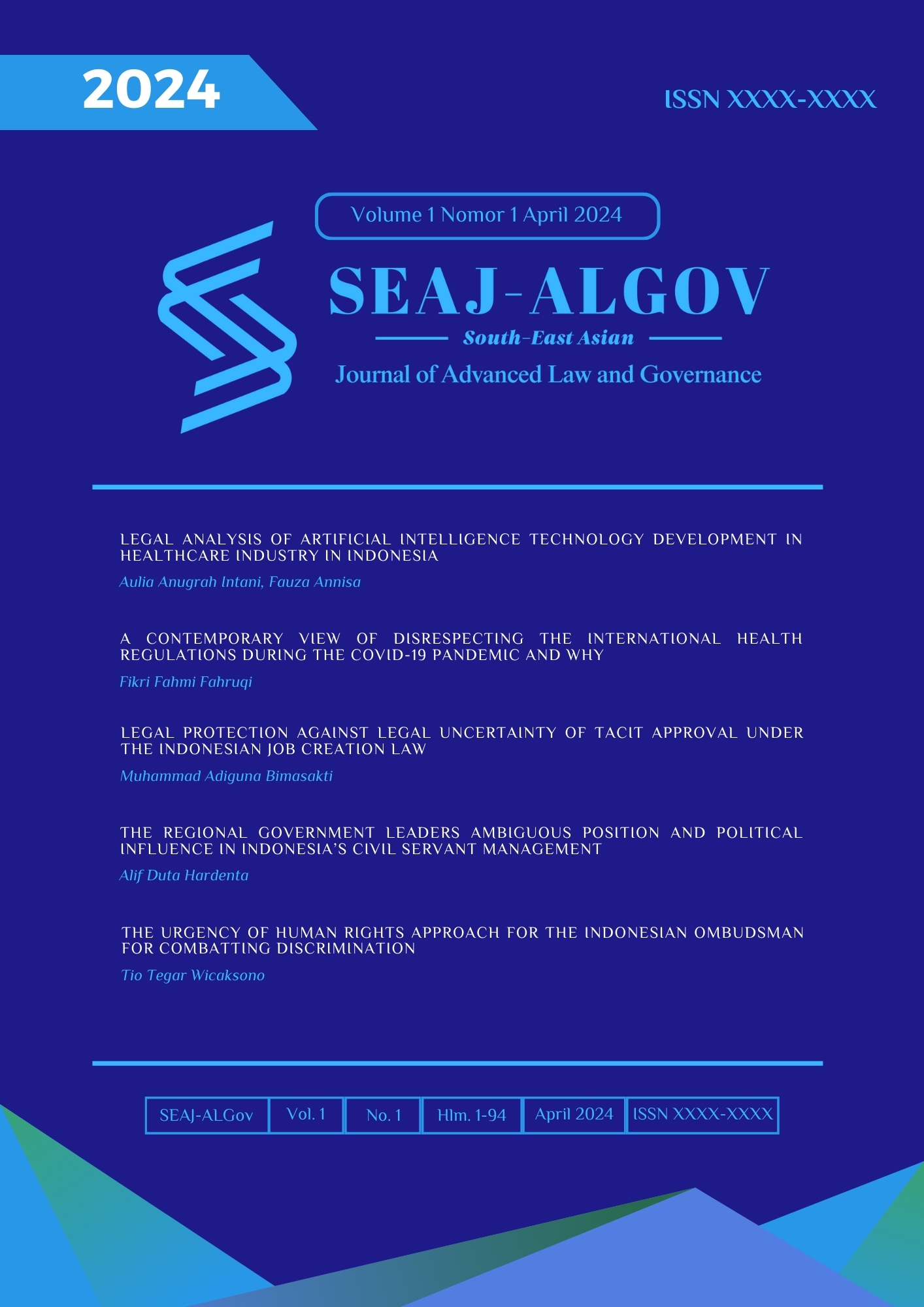Legal Analysis: Accountability on Developing Artificial Intelligence in Healthcare Industry in Indonesia
Abstract
The rapid development of Artificial Intelligence (AI) technology generates immense potential and challenges for various domains, including the healthcare sector. AI can encompass early disease detection, personalized patient care, streamlined workflows, and error reduction. Nevertheless, ethical and legal dilemmas surrounding data privacy and accountability arise. This essay addresses a comprehensive legal analysis regarding those challenges and how health technology regulation should be created by involving government and healthcare stakeholders. A data protection approach by anonymizing data could ensure sensitive patient information and medical records remain confidential while implementing AI advancements. Meanwhile, AI systems are seen as electronic agents, which forces defining clear legal responsibilities for any unfavourable outcome. Therefore, a high urgency emerges for a robust regulatory framework regarding AI implementation and responsibility in the healthcare sector. A comprehensive legal framework must address responsibility and potential liability to ensure fairness, commitment, and transparency for medical professionals, patients, and AI developers. It should harmonize the innovation with Indonesia's ideology, values, and laws while promoting ethical considerations, equal healthcare access, and a balanced coexistence between humans and technology. A commitment to secure, equitable, and relevant regulations is imperative to safeguard individual rights, foster responsible AI innovation, and enhance the healthcare landscape.




